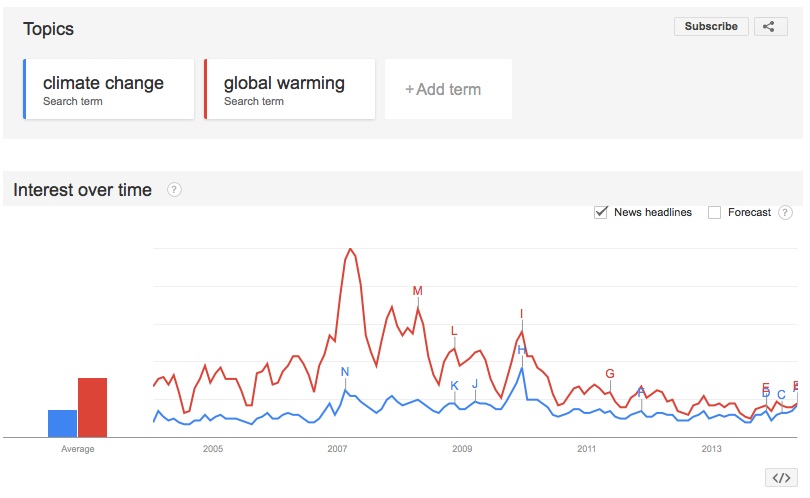Republicans Google 'Climate Change' During Extreme Weather

During extreme or unusual weather, Americans' political leanings seem to influence their Internet searches about the climate, new research suggests.
On Google, Republicans search for information about weather, climate change and global warming during extremely hot or cold weather, while Democrats search for these terms when temperatures are lower or higher than average, according to a new study, detailed July 16 in the journal Climatic Change.
The findings suggest that "different types of people experience weather differently or have different perceptions about what type of weather defines climate change," Corey Lang, an economist at the University of Rhode Island and author of the study, said in a statement.
Weather and climate are distinct phenomena, though the two are often confused. Weather refers to short-term atmospheric conditions, whereas climate refers to atmospheric behavior over relatively long time periods. While scientists can't attribute a particular weather event to climate change, some types of weather, including severe storms and droughts, may become more frequent as a result of climate change.
Google Trends keeps records of all Google searches, as well as where and when they occur. Lang used the service to measure how often, when and where citizens in 205 U.S. cities searched for the terms "global warming," "climate change," "weather," "drought" and "flood" (the latter two are predicted to become more common as a result of climate change), from January 2004 to May 2013. [The Reality of Climate Change: 10 Myths Busted]
Lang matched the Google data with local weather-station records and the 2008 presidential election results from Dave Leip's "Atlas of Presidential Elections."
Search traffic for these terms climbed during bouts of extreme heat in summer, extended periods of no rain and times when fewer extreme cold snaps occurred in winter — all weather patterns that have been linked to climate change. However, the searches also peaked during lower-than-average winter and spring temperatures, which are not consistent with global warming, the researchers noted in a statement.
Get the world’s most fascinating discoveries delivered straight to your inbox.
When Lang broke down the search data by political party and level of education, the findings were intriguing. Republicans and people from less-educated areas searched for climate-change-related terms during extreme temperatures, whereas Democrats and people from well-educated areas Googled these terms during changes in average temperatures.
A possible explanation for the findings is that people who experience extreme weather have a genuine interest in learning about climate change, Lang said. However, another possibility is that climate-change deniers who experience unusually cold weather search for climate-change-related terms to try to confirm their beliefs that global warming is not occurring, Lang said.
People also respond differently depending on terminology: A recent survey found that people consider the term "global warming" scarier than "climate change." Democrats, political independents, liberals and moderates were more likely to express concern about "global warming," whereas Republicans reported seeing the two terms as more or less equivalent. African Americans and Hispanic Americans also found the term "global warming" more troubling, the survey found.
Follow Tanya Lewis on Twitter and Google+. Follow us @livescience, Facebook & Google+. Original article on Live Science.



